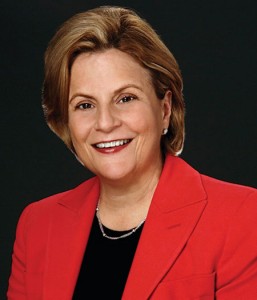 The deepening shift towards leftist populism in Venezuela, Bolivia, Ecuador, Nicaragua and Argentina, gathered yet another group of policymakers, Congresswoman Ileana Ros-Lehtinen, Congressman Engel, opinion-makers and academics in Washington D.C. in a conference at the Heritage Foundation this morning. Over the past twenty years Latin America has experienced assorted political shifts, most notably the region-wide shift from dictatorships to democracies that occurred during the 1980’s and 1990’s. Two of the trends within this recent shift that concern the Latin America and D.C. policy communities the most, are the decrease in judicial independence and the weakening of the freedom of the press, both of which are essential for a healthy democracy. During the conference they discussed how executive power is abused in these nations, either through intimidation of the judiciary or outright impunity. Panelists discussed lives in exile and seeking political asylum because the governments in their nations do not tolerate differing views, and provided a grim picture of the state of democracy in these nations today -for example, former President Hurtado, of Ecuador, noted that these policies have created a, “wave of fear,” in his country.
The deepening shift towards leftist populism in Venezuela, Bolivia, Ecuador, Nicaragua and Argentina, gathered yet another group of policymakers, Congresswoman Ileana Ros-Lehtinen, Congressman Engel, opinion-makers and academics in Washington D.C. in a conference at the Heritage Foundation this morning. Over the past twenty years Latin America has experienced assorted political shifts, most notably the region-wide shift from dictatorships to democracies that occurred during the 1980’s and 1990’s. Two of the trends within this recent shift that concern the Latin America and D.C. policy communities the most, are the decrease in judicial independence and the weakening of the freedom of the press, both of which are essential for a healthy democracy. During the conference they discussed how executive power is abused in these nations, either through intimidation of the judiciary or outright impunity. Panelists discussed lives in exile and seeking political asylum because the governments in their nations do not tolerate differing views, and provided a grim picture of the state of democracy in these nations today -for example, former President Hurtado, of Ecuador, noted that these policies have created a, “wave of fear,” in his country.
Of the five countries listed above, Argentina is a particularly interesting case because, unlike the weakened judiciaries of Chavez/Maduro’s Venezuela and Morales’ Bolivia, the Argentine judiciary has resisted the Kirchner administrations attempts to weaken it. For example, they successfully resisted the administrations attempts to impose “judicial reform.” The bulk of the reform was a law which would have called for the popular election of the Magistrate’s Council, this would have politicized the judiciary in Argentina because this Council chooses the judges; fortunately the Supreme Court has maintained enough independence that they were able to strike the law down. The courts were also able to resist administration attempts to weaken the press; panelists believe that the Court will reject the media law that would break up one of the nation’s largest media groups, Grupo Clarín. The government did manage to punish the courts in another way; however, they cut a seventh of their budget.
The weakened judiciary in the other countries means that the system of checks and balances written into these nations’ constitutions no longer exists and Presidents are capable of turning themselves in “21st century dictators,” as former Venezuelan Senator Allan Brewer Carías, called them. Presidents achieve this through a series of laws which allow them to run for office indefinitely and through fraudulent elections. A scholar from Venezuela cited last spring’s presidential elections as a perfect example, as first the Chavez and then the Maduro camps successfully miscounted votes and saturated the media thereby guaranteeing an electoral win. The cults of personality which these leaders create are enabled by their control over the media because it both enhances their position and weakens the opposition by restricting their access to the press. Chavez, for example, had unlimited access to the press and would frequently give multi-hour long talks that interrupted all other programming, the opposition virtually lacked access and the largest opposition paper was shut down during his administration.
Considering these gross abrogations’s of democratic freedom one might think that the international community would take note, and start to castigate these “bad actors,” but this has not proven to be the case. Various speakers at the Heritage Foundation conference said that they were grateful that the United States has, on occasion, verbally scolded these governments and took the Argentinean government to court over defaulting on loans. They noted that neighboring countries in Latin America, such as Brazil, have not commented on these occurrences and have even expressed support for these nations. This is an area where freer nations in Western Hemisphere should work together to express support for the judiciaries in these nations and for their media. Two arenas for fomenting support could be the OAS and the Inter-American Court for Human Rights, where some of these actors have already been taken. In a speech during the conference, Representative Engel, noted that the Court in particular is a “hero” because it has been fighting back against democratic weakening in the region, and said that this is why Venezuela has left the Court. The United States and other countries in the region such as Mexico, Colombia, Chile, and Uruguay would do well to show support for these multilateral organization’s so they can keep pushing back against the democratic crisis in the region.
* Gabriela Ippolito, member of Young Professional in Foreign Policy (YPFP)
Source: HACER











Discussion
No comments for “Opinion: Democratic Weakening in the Western Hemisphere – by Gabriela Ippolito”